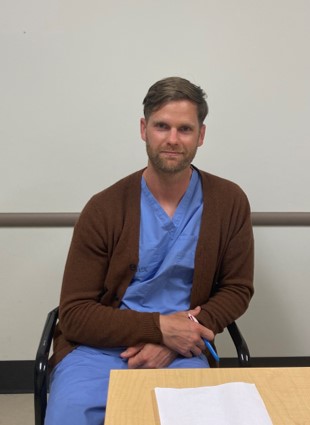Physiotherapy Month during COVID-19
28
May
2020
May is Physiotherapy Month, which celebrates the great work that physiotherapists do. During COVID-19, physiotherapists have dealt with uncertain circumstances that have impacted how they work. Andrew Lockwood, who is the Physiotherapy Professional Practice Leader at Humber River Health, has experienced first hand what it is like to work in the industry during these times. Dealing with COVID-19, it is especially important to recognize the different ways that physiotherapists are involved in assisting during the pandemic.
Andrew noted that “physiotherapists have been impacted in several ways by COVID-19.” One way being voluntary redeployment into different areas of the hospital or long-term care homes in some cases. “Some outpatient and inpatient physiotherapists are voluntarily being redeployed since many outpatient programs, and elective procedures have been put on hold due to COVID-19,” said Andrew.
“Many physiotherapists and rehab assistants have had to adapt to unfamiliar patient populations and levels of acuity to support inpatient medical care. Many Covid-19 positive patients with increased medical needs are supported in the Intensive Care Unit. We have planned for this by enhancing staffing numbers and expanding the ICU to other departments to maximize the availability of care that these patients may require. We have physiotherapists and rehab assistants working in the ICU with these patients. Our primary goal is to maximize functional mobility and strength to minimize the complications of prolonged bed rest. We are also able to assist many patients through chest physio interventions to help those with difficulty breathing from various causes. To also compliment breathing, physiotherapists help support patients transition to a prone position, both in the ICU and on the medical ward – this is where the patient is transferred onto their stomach in the hospital bed, with assistance or performed independently. This position has been seen to help with breathing difficulty for COVID positive cases,” said Andrew.
Like other areas of the hospital, having Zoom calls have become useful in place of traditional visitations. Physiotherapists can set up video calls so that family members can see how their loved ones are doing. There may “be a need to communicate with the family, whether the patient is COVID-19 positive or not.” Visiting admitted patients at the hospital is currently restricted, and there are minimal outpatient services right now. For the outpatient services that are deemed essential, even if someone is dropping a patient off at the hospital, they are still not allowed to visit. This is why having audio or visual calls are beneficial. Additionally, having material online on Humber River Health’s website under ‘Patient Education’ is another way that loved ones can get the information that they need without coming to the appointment.
Physiotherapy Month is different this year in light of COVID-19. The various attributes of physiotherapists are highlighted as they heroically take on new or modified roles to do their part during the pandemic. Physiotherapists such as Andrew Lockwood and his team exemplify the importance of physiotherapists.

[Pictured: Andrew Lockwood]
